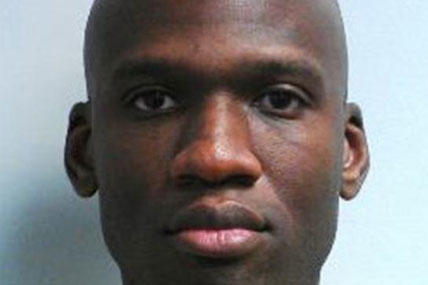Hewlett-Packard Co., which held the contract that the Washington Navy Yard gunman worked under, said it was unaware of his troubling behavior in the weeks before the shooting.
The world's largest personal computer maker said the gunman, Aaron Alexis, was employed by a subcontractor, The Experts Inc., based in Fort Lauderdale, Fla., and that supervisors there knew of his mental health issues but failed to report them to either HP or the Navy, a company spokesman said.
"Aaron Alexis was not and has never been an employee of HP Enterprise Services; Alexis was employed by The Experts, a subcontractor," it stated. "HP had no information prior to the Washington Navy Yard incident that Aaron Alexis posed a threat to others or had a propensity for violence."
The statement came a day after the Defense Department released multiple investigations that concluded the Sept. 16, 2013, shooting in downtown Washington, D.C., could have been prevented. The incident left 12 civilian workers and contractors dead, in addition to Alexis. It was the second deadliest mass shooting on a U.S. military base after the 2009 massacre at Fort Hood, Texas.
Alexis, a Navy reservist and former sailor, maintained a secret security clearance despite multiple brushes with the law. He had several prior arrests -- two involving firearms -- and, in the weeks before the incident, he complained of "being followed, hearing voices, and of being under attack by vibrations and microwaves," according to the Pentagon's internal review of the shooting.
A police officer in Newport, R.I., on Aug. 7 showed up at Alexis' hotel room after getting a complaint that he was harassing patrons, according to a separate Navy review. Alexis told the officer that he had changed hotels three times because someone he argued with at the airport sent people to follow him and keep him awake by using a "microwave machine" to send vibrations into his body, the document states. The officer reported the incident to naval police, but no action was taken.
Alexis' supervisors at The Experts knew of this event and were concerned enough to temporarily remove his access in the Pentagon's security clearance system, according to the Pentagon review. But after a period of rest, he was deemed fit to return to work and his access was restored, it stated.
"Had this information been reported, properly adjudicated, and acted upon, Alexis' authorization to access secure facilities and information would have been revoked," the Navy report concluded.
After the shooting, HP ended its relationship with the subcontractor.
"The Experts was aware of significant information about Aaron Alexis that was not known to HP," the e-mail states. "Yet, The Experts made a decision to send Alexis back to work after the incident in Newport, R.I. without sharing any of this information with HP or the government."
A voice message left with Thomas Hoshko, chief executive officer of The Experts, requesting comment wasn't returned on Wednesday.
The Pentagon report stated that supervisors at the subcontractor "had no insight into Alexis' chronic personal conduct issues" during his time in the Navy and, like those at other contractors, may have been reluctant to report "adverse" information, especially any relating to mental health issues.
The Pentagon's investigations into the incident revealed "troubling gaps" in the military's security clearance system and installation management practices, Defense Secretary Chuck Hagel said at Tuesday's press conference.
To close those gaps, Hagel said the department will begin continuous and automated record checks of personnel with access to defense facilities or information. The current system relies on periodic "reinvestigations" in which a previously completed background check is updated every five years for a top secret clearance, 10 years for a secret clearance or 15 years for a confidential clearance.
In addition to that change and others, Hagel said he is considering recommendations to reduce the number of personnel with security clearances, reassess whether it should rely on the Office of Personnel Management to conduct background investigations of its employees and contractors, and do more to de-stigmatize the process for seeking mental health treatment.
The number of people eligible for security clearances tripled after the terrorist attacks of Sept. 11, 2001. Some of the 2.5 million individuals who hold active clearances today will likely be at risk of losing them pending further review.
In a recent pilot program involving a sample of 3,370 soldiers, civilians and contractors, investigators found 731 individuals -- more than one in five -- had previously unreported "derogatory information" that prompted additional screenings, according to the Pentagon review.
Of these individuals, 99 had "serious derogatory information," such as financial issues, domestic abuse, drug abuse or prostitution, and their clearances were either revoked or suspended, according to the document.
-- Brendan McGarry can be reached at brendan.mcgarry@monster.com
Don't Miss a Single Military.com Story
To read the full article and get exclusive benefits, sign up today.
It’s FREE
Why am I seeing this? Visit our FAQs




























